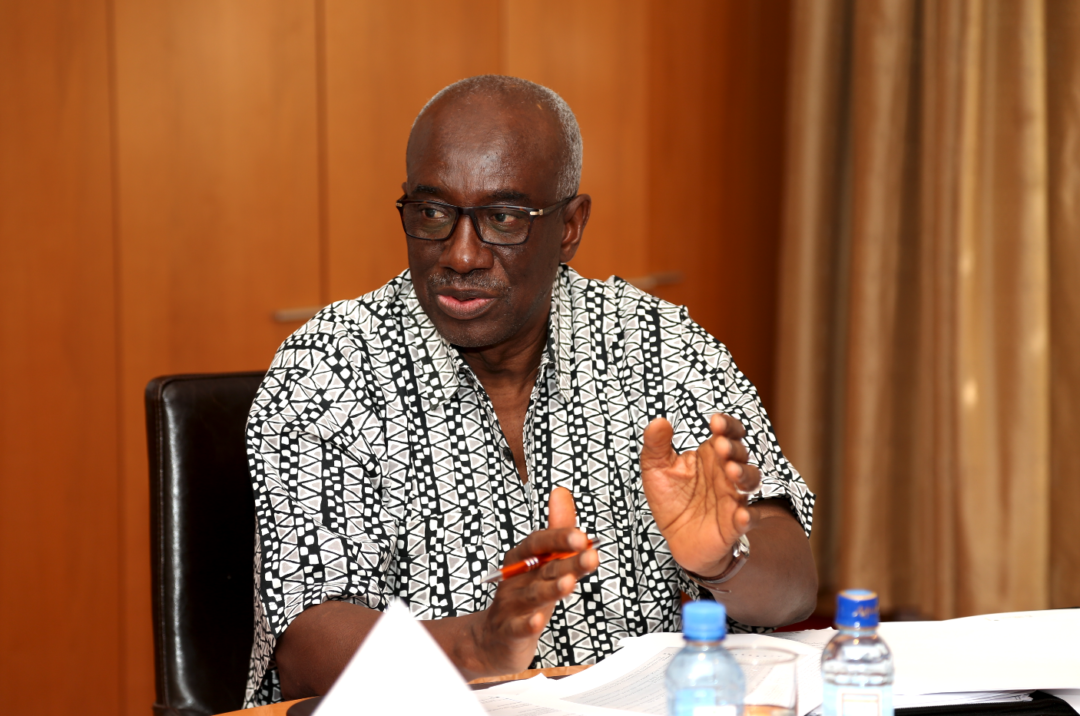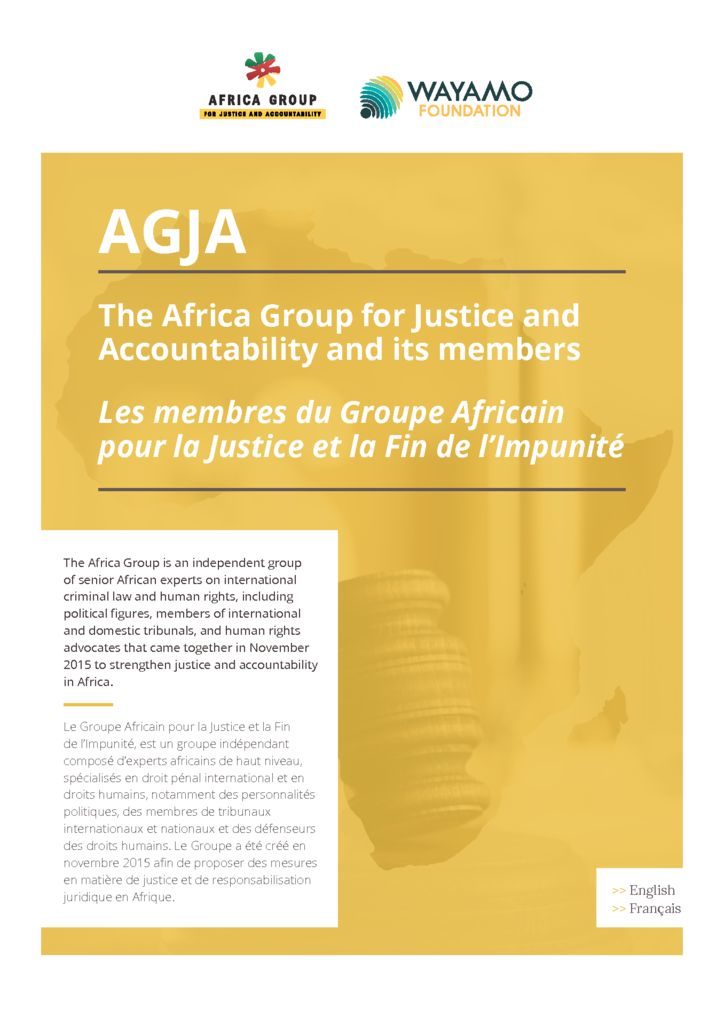The Africa Group for Justice and Accountability (AGJA) is proud to present its latest report :
Since the Africa Group came together in November 2015, it has implemented a number of activities to advance justice and accountability measures in Africa and to strengthen local accountability measures, such as commissions of inquiry, domestic crime units for international crimes, and hybrid mechanisms.
AGJA is currently working on the following projects :
“Fighting impunity and ensuring accountability in East Africa” project (2017-2018)
AGJA and the Wayamo Foundation are training investigators, prosecutors and judges in international criminal justice and transnational organised crime, holding public outreach activities, and building diplomatic and political collaboration with key regional and international stakeholders. With a view to strengthening regional co-operation, AGJA and Wayamo are supporting the establishment of a network of Directors of Public Prosecution and Heads of Criminal Investigation Departments.
The Africa Group has been working with the authorities of the Central African Republic since September 2016, to support the establishment and operationalisation of the Special Criminal Court (SCC) in Bangui. To this end, AGJA and the Wayamo Foundation are holding international symposia to raise awareness about the importance of the SCC, as well as capacity building workshops for the newly nominated members of the Court.
Strengthening justice and accountability in Nigeria through capacity building
Since December 2016, the Africa Group and Wayamo Foundation have been holding workshops for civil and military prosecutors to enhance Nigeria’s domestic capacity to investigate and prosecute core international crimes and transnational organised crimes in accordance with the principle of complementarity.
Transitional justice advice to The Gambia
At the request of Attorney-General and Minister of Justice. Mr. Aboubacarr Tambadou, AGJA and Wayamo Foundation have jointly issued an expert advisory report on the Truth, Reparation and Reconciliation Commission Bill, for which the Minister has expressed his gratitude.
AGJA is participating in the Hybrid Justice Project, launched in January 2017, which analyses the impact of hybrid justice mechanisms on post-conflict societies. The project also aims at producing guidelines for future hybrid courts as well as a policy advice for the ICC on the role such courts play in terms of complementarity.
Improving relations between African states and the ICC
AGJA has called on the ICC to listen to criticism and on States Parties to voice support or constructive criticism on a more regular basis. The Africa Group has responded to emerging developments in South Africa, The Gambia, Burundi and elsewhere with public statements, which were widely covered by the media.
Main achievements:
Since its establishment, AGJA has:
- consolidated itself as a credible player that fosters and enables dialogue among diverse justice-related sectors;
- established itself as a new, African-led voice to promote international justice in Africa;
- grown significantly in terms of popular recognition, being cited in local, regional and international news items, and has been consistently raising its social media profile;
- emerged as a key interlocutor for like-minded groups and civil society organisations working in the field of human rights and international justice resulting in important players (the ICC, African Union, civil society organisations) expecting AGJA to play a facilitating, mediating and diplomatic role in the future;
- contributed to a changed narrative regarding justice and accountability on the African continent. Following the withdrawal announcements of Burundi, The Gambia and South Africa, AGJA members engaged in backdoor diplomacy to approach the respective Foreign and Justice Ministers and convince them to publish public statements of support for the ICC.
- engaged with AU officials and diplomats in multiple meetings. The AU has opened its doors to AGJA by receiving a delegation in Addis Ababa;
- held side events at the Assembly of States Parties of the ICC that have been hosted by several African states, the most recent example being an event on immunity co-hosted by Nigeria, Sierra Leone and Uganda;
- provided advice for The Gambia´s Truth, Reconciliation and Reparations Commission and completed its first mission, including consultations with key actors, at the invitation of the Minister of Justice;
- actively engaged in capacity building exercises for investigators and prosecutors in Nigeria as a means of enhancing complementarity. These efforts were cited in the Preliminary Examination Report of the Office of Prosecutor of the ICC in 2017;
- facilitated capacity building workshops for participants who have subsequently been promoted to join specialised prosecution units;
- contributed to a series of behind-the-scenes meetings on contentious issues, with the decisions taken being widely seen as pivotal to the future of international criminal justice;
- assisted with the establishment of an East African network of Directors of Public Prosecution and Heads of Criminal Investigation Departments from Kenya, Tanzania, Uganda and Rwanda.



